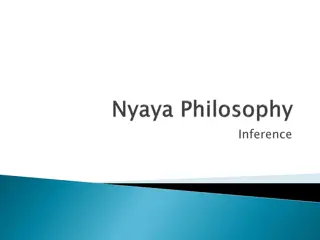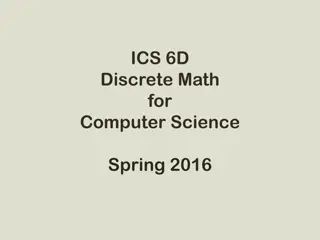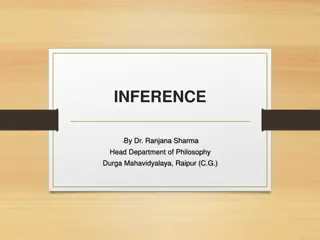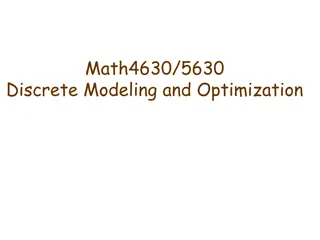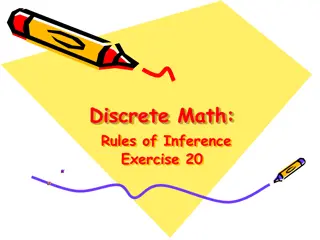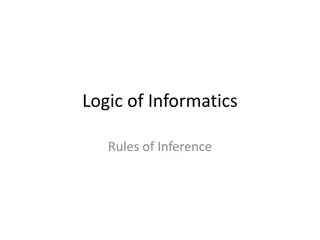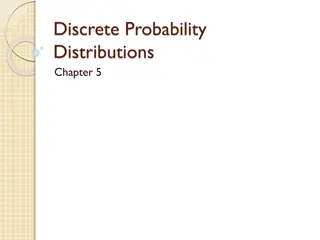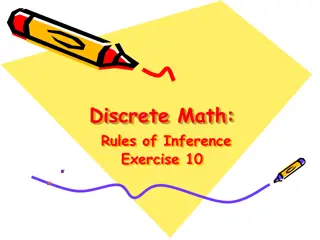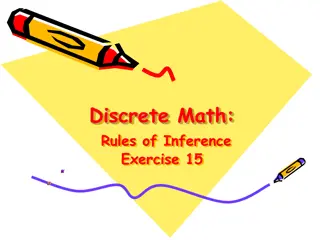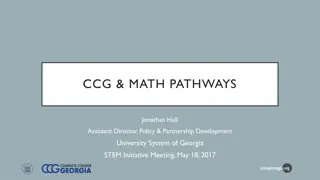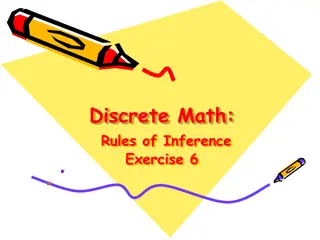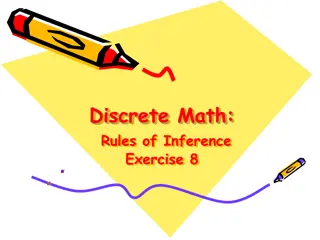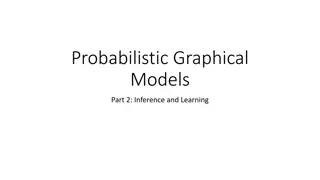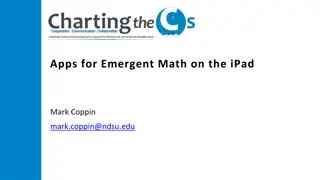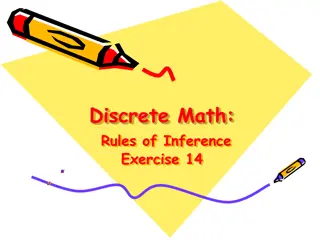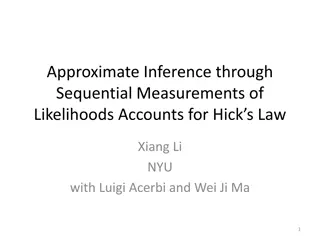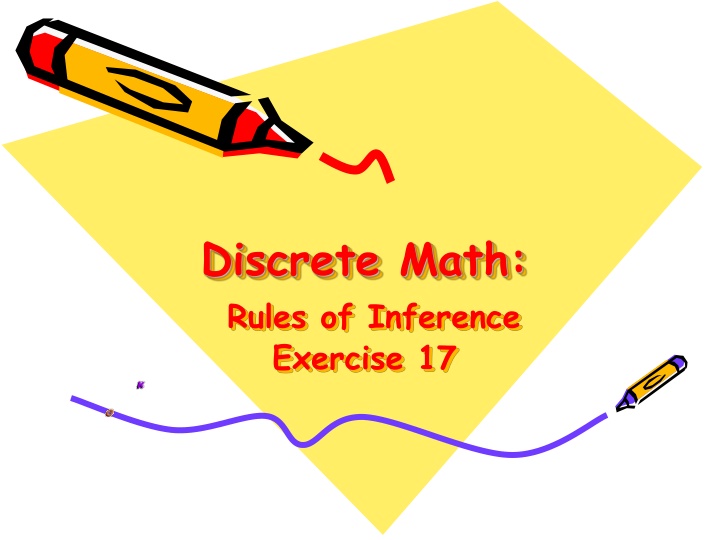
Universal Modus Tollens Rule Justification in Discrete Math
Learn how to justify the rule of universal modus tollens in discrete math by demonstrating that the premises involving P(x) and Q(x), along with Q(a) for a specific element a, lead to the conclusion of P(a). Dive into the solution and understand the reasoning behind this inference rule.
Download Presentation

Please find below an Image/Link to download the presentation.
The content on the website is provided AS IS for your information and personal use only. It may not be sold, licensed, or shared on other websites without obtaining consent from the author. If you encounter any issues during the download, it is possible that the publisher has removed the file from their server.
You are allowed to download the files provided on this website for personal or commercial use, subject to the condition that they are used lawfully. All files are the property of their respective owners.
The content on the website is provided AS IS for your information and personal use only. It may not be sold, licensed, or shared on other websites without obtaining consent from the author.
E N D
Presentation Transcript
Discrete Math: Rules of Inference Exercise 17
Exercise Justify the rule of universal modus tollens by showing that the premises x(P (x) Q(x)) and Q(a) for a particular element a in the domain, imply P (a).
Solution We are given the premises Vx(P(x) Q(x)) and Q(a). We want to show P(a). Suppose, to the contrary, that P(a) is not true. Then P(a) is true. Therefore by universal modus ponens, we have Q(a). But this contradicts the given premise Q(a). Therefore our supposition must have been wrong, and so P(a) is true, as desired.
References Discrete Mathematics and Its Applications, McGraw-Hill; 7th edition (June 26, 2006). Kenneth Rosen Discrete Mathematics An Open Introduction, 2nd edition. Oscar Le in A Short Course in Discrete Mathematics, 01 Dec 2004, Edward Bender & S. Gill Williamson

